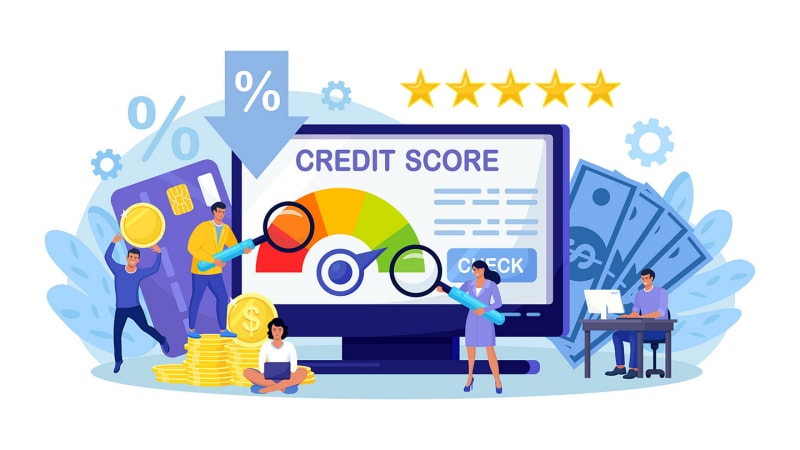850 Credit Score: A Guide to Credit Scores

Quick insights
- An 850 credit score is the highest score you can receive from VantageScore® and FICO®.
- It is rare to have an 850 credit score, but not impossible, and may be useful when applying for credit opportunities.
- Achieving and maintaining an 850 credit score can be difficult as it takes time, diligence and commitment to manage your credit effectively.
Credit scores generally range from 300-850. If you’ve reached an 850 credit score, you might be wondering what that means and if you can achieve a score higher than that. Let’s review what an 850 credit score is in more detail below.
What is an 850 credit score?
An 850 credit score is the highest credit score one can receive for both VantageScore and FICO score. It is rare to have this score given how hard it is to reach, but it is not impossible. It’s a significant score that indicates ideal creditworthiness and can show a healthy payment history. Someone with an 850 credit score likely has multiple types of credit open (such as a credit card, mortgage and auto loan) for a long period of time, hardly (if ever) misses a payment and has a low credit utilization ratio (the amount of credit you use against your total available credit).
It takes financial discipline, long-term credit management, commitment and consistency in order to achieve an 850 credit score.
Is 850 a good credit score?
Looking at both VantageScore and FICO models, an 850 credit score is at the highest end of possible credit score ranges and is labeled “excellent” or “exceptional.”
This credit score indicates that you are incredibly responsible with your credit, have a long-standing history of credit and do not currently have any negative marks on your credit report.
Credit opportunities with an 850 credit score
An 850 credit score may help unlock some opportunities for you that lower credit scores cannot. For example, there may be premium credit cards that have high credit score requirements. These cards may come with rewards programs and high-end perks that you may not be able to get with other types of credit cards.
You may find that an 850 credit score makes for a smoother approval process for credit cards or other types of credit, such as mortgages and personal loans. Your potential lender may consider a lower annual percentage rate (APR) and a higher line of credit as you may be a less risky borrower.
Maintaining an 850 credit score
While it can be difficult to achieve an 850 credit score, it can also take a lot of effort to maintain that high of a score. This is because several factors affect your credit score, and if you’re not careful, something could cause your score to decrease.
To help maintain an 850 credit score, consider the following:
- Continue making your payments on time. Missing just one payment or making a payment late could decrease your credit score.
- Avoid applying for more lines of credit. Anytime you apply for new credit, your lender runs a hard credit check, which may temporarily hurt your credit score. However, your score may go back to 850 over time.
- Maintain a low credit utilization ratio. Keeping this ratio to 30% or less is preferable, but it may be better to keep it below 10% if possible to keep a high score. To achieve that number, you may consider keeping credit card accounts active and open, including accounts you don’t use often in order to maintain a high credit limit.
Consider enrolling in Chase Credit Journey®, a free online tool, to view your score for free. You can check your score with this tool without impacting it and use the credit planning feature provided by Experian™ to help raise your score should it decline.
Note that scoring models weigh certain factors differently and may have different reporting timelines, so it may be difficult to maintain an 850 credit score for both VantageScore and FICO simultaneously.
Common misconceptions about an 850 credit score
While an 850 credit score is a major credit achievement and a positive reflection on your ability to manage your credit, it does not inherently mean that you have no financial challenges. For example, people with an 850 credit score may still have debt to pay off or may not maintain a balanced budget.
Additionally, it is not required to have an 850 credit score to get good rates and approvals for premium cards. Typically, a score of 800 and higher can gain the same or similar access to opportunities that an 850 score can.
In conclusion
Achieving an 850 credit score is a significant accomplishment as it takes time, commitment and dedication to achieve it. However, an 850 score is not required to reap the benefits of having a high credit score. It can be important to improve your financial habits and work to reach a healthy credit score, but your score does not have to be perfect all the time. It is normal for it to fluctuate due to external factors or as a result of shifting your financial habits and needs.



